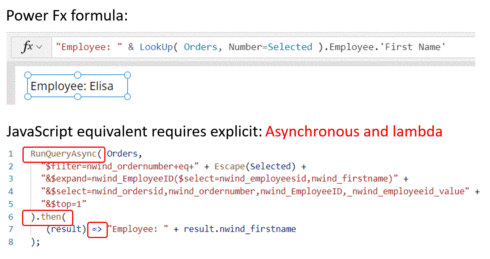
Microsoft has announced a new open-source programming language designed for business users and professional developers. Power Fx is designed to be a low-code language that anyone can use. It is based on Microsoft Excel and uses already familiar formulas, opening the language up to a broad range of users and skill sets, according to the company.
“With Power Fx, we can amplify the impact of developers by many multiples over the same time horizon. By offering citizen developers a familiar and approachable way to express logic, we’re dramatically expanding who can build sophisticated solutions. By delivering Power Fx with the tools a professional expects, including the ability to directly edit apps in text editors like Visual Studio Code and use source control, we’re making it possible for developers to go faster and find common ground with millions of makers,” Ryan Cunningham, director PM of Power Apps at Microsoft, wrote in a post.
RELATED CONTENT:
Microsoft plans for low code with new updates to the Power Platform
New mixed reality platform Microsoft Mesh to enable shared experiences from anywhere
Visual Studio 2019 v16.9 and v16.10 Preview 1 and .NET Upgrade Assistant preview
Businesses in 2021 think high for low code
Since the language is open source, the language will be available for open contribution and innovation. Additionally, it is built for the low-code world, and will be able to extend across Microsoft’s Power Platform, Dataverse, Power Automate, and Power Virtual Agents.
“The truth is, point-and-click tools are great for quickly assembling experiences and workflows, but many real-world solutions need a layer of logic that goes beyond what is practical to drag and drop,” Cunningham explained.
The motivation behind the language was to develop something that was familiar to Excel users, content-centric instead of program-centric, and have the ability to recompile in real time.
Since Power Fx is based on Microsoft Excel, it provides similar syntax, functions and behaviors. For instance, formulas are declarative and recalculate instantly. This helps ensure everyone works from the same source of truth and frees developers up from having to manually update variables and data tables, according to Cunningham.






